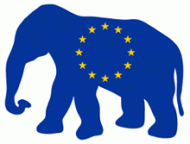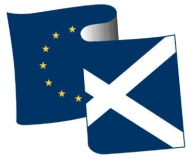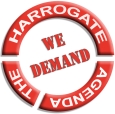 The Scottish independence campaign has, in the last two weeks in particular, shown us the extent to which prestige will be amalgamated with fear, uncertainty and doubt (FUD) in the effort to influence and persude voters to back the political class’ preferred outcome.
The Scottish independence campaign has, in the last two weeks in particular, shown us the extent to which prestige will be amalgamated with fear, uncertainty and doubt (FUD) in the effort to influence and persude voters to back the political class’ preferred outcome.
Despite the President of the United States having previously pledged to stay out of the Scottish independence debate, he could not resist chipping in with his comment that the US has a deep interest in making sure one of the closest allies the country has remains a strong, robust, united and effective partner. To what extent the US will work to ‘make sure’ the Kingdom stays united remains to be seen.
Now His Holiness Pope Francis has passed opinion, reported in the Telegraph, with regard to the independence movements in Catalonia and Scotland, suggesting the case for independence in Scotland is not clear and may not be just:
Obviously, there are nations with cultures so different that couldn’t even be stuck together with glue. The Yugoslavian case is very clear, but I ask myself if it is so clear in other cases. Scotland, Padania, Catalunya.
There will be cases that will be just and cases that will not be just, but the secession of a nation without an antecedent of mandatory unity, one has to take it with a lot of grains of salt and analyse it case by case.
If His Holiness has a desire for unity, he should stick to matters ecumenical. The Scots people were never asked to vote on union. Their voice on union or independence has never been heard. Yet outsiders are trying to push them in a particular direction – and not because it would be in the interest of Scots themselves.
The independence debate in Scotland is a matter for Scots, not for American Presidents, their Secretaries of State, the Vicar of Rome or the Swedish Foreign Minister. It is about a country’s people deciding, to an extent, the nature of their governance and how their country will be organised. It is a matter of democracy, such as it exists.
If the ‘yes’ campaign wins the referendum, what the Scots do with their restored national self determination is up to them. If they choose to retain that self determination and represent themselves in the world, using their own voice and promoting their own interests, that is for them to establish. If they regain ultimate decision making authority over their country, yet then choose to give it away again to the European Union, that too is a matter for them. It is wrong for politicians and religious leaders from elsewhere in the world to seek to exert influence over the Scots’ decision.
This interference gives us a flavour of what we should expect if the Conservatives win the general election next year and a referendum on our membership of the EU is held in 2017.
 Leaders of EU countries and the US in particular will be joined by religious figures and politically motivated industrialists from a variety of corporations and nations to spread FUD about what they believe about the implications for our economy if British independence is restored. They will be joined by media cronies doing the bidding of their owners, who are in bed with the political class.
Leaders of EU countries and the US in particular will be joined by religious figures and politically motivated industrialists from a variety of corporations and nations to spread FUD about what they believe about the implications for our economy if British independence is restored. They will be joined by media cronies doing the bidding of their owners, who are in bed with the political class.
There will be no fair or impartial hearing for the ‘out’ side. Only the most extreme, divisive or deluded figures will be invited to speak, so they push voters to the ‘in’ side due to their conspiratorial or frankly idiotic views, or lightweight claims that fall apart under the most cursory scrutiny and examination.
To win a referendum campaign the ‘out’ side must not rely on the normal channels, such as the media. The message that a referendum is exclusively about who should run Britain, needs to be spread face to face directly to voters in cities, towns and villages throughout the country. It is only then that the positive vision for a successful and independent Britain – as set out in FLEXCIT – can be heard and explained to counter the FUD which will flood the airwaves and print media to paint a false picture of economic armageddon should we free ourselves from the EU.
The ‘out’ side can win the referendum in the face of overwhelming dishonesty and misrepresentation, but it will need to unite around common strategy so the electorate receives a consistent and clear message. Witterings from Witney has already started putting out feelers, with limited success. The problem though is that some entities – which despite being nominally against EU membership have done nothing to develop or promote a strategy for getting out – will use the referendum campaign as a career move, with one eye firmly on individual prospects to become MPs or prominent figures in political circles.
There is still time to address this. But whether the individuals involved will set aside their own personal agendas, in order to help secure the exit from the EU they claim to want, remains to be seen.






 The only surprise is that it took this long. The
The only surprise is that it took this long. The  While in the
While in the 








 For some people this may be a statement of the bleeding obvious, but listening to BBC Radio 4 Today this morning, it seems the media is using the Scottish independence campaign to test out which arguments should be made and lines taken in any future EU referendum campaign (whenever that might be).
For some people this may be a statement of the bleeding obvious, but listening to BBC Radio 4 Today this morning, it seems the media is using the Scottish independence campaign to test out which arguments should be made and lines taken in any future EU referendum campaign (whenever that might be).











What’s on your Mind?